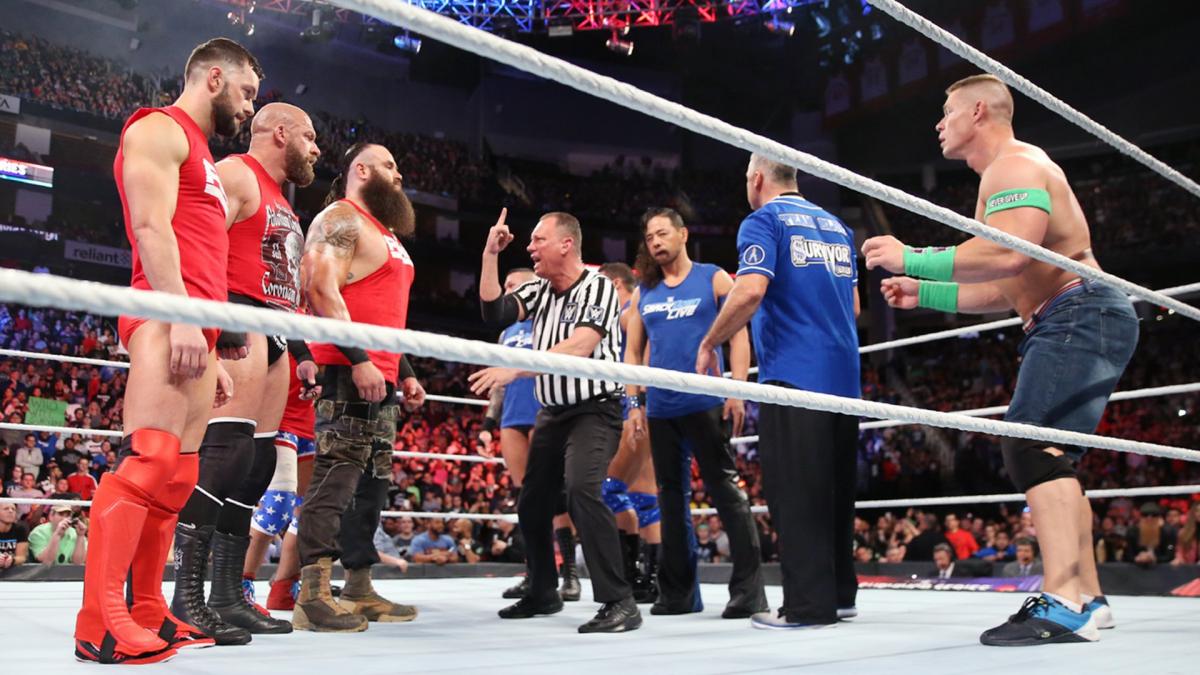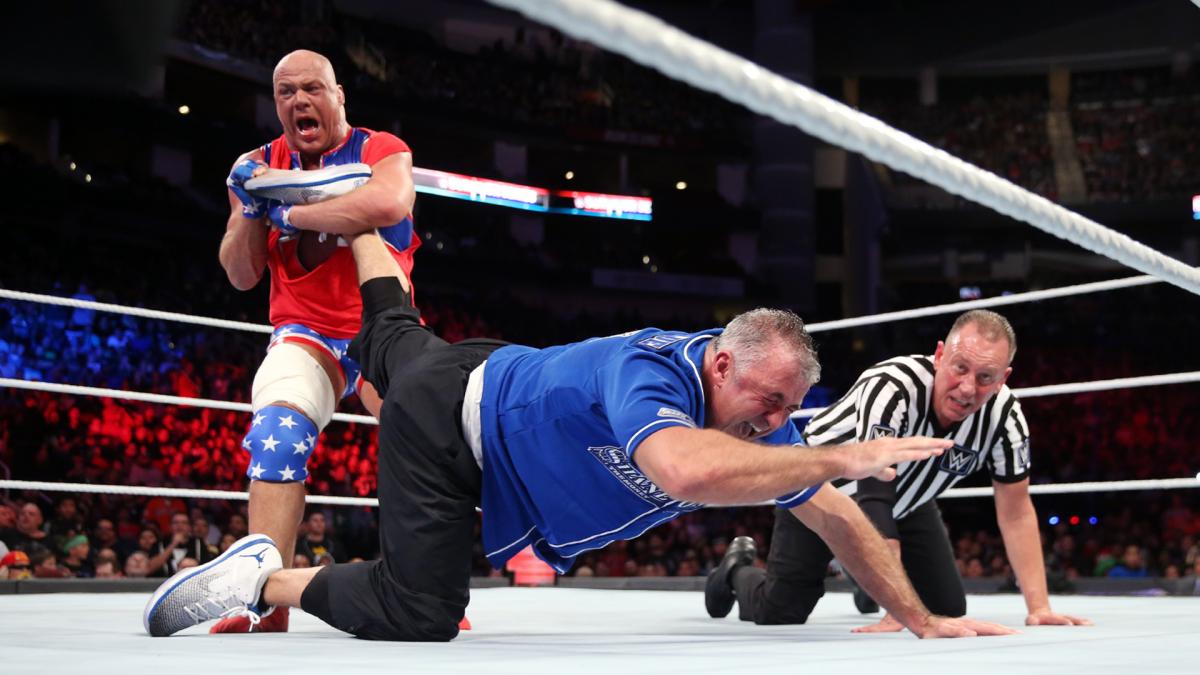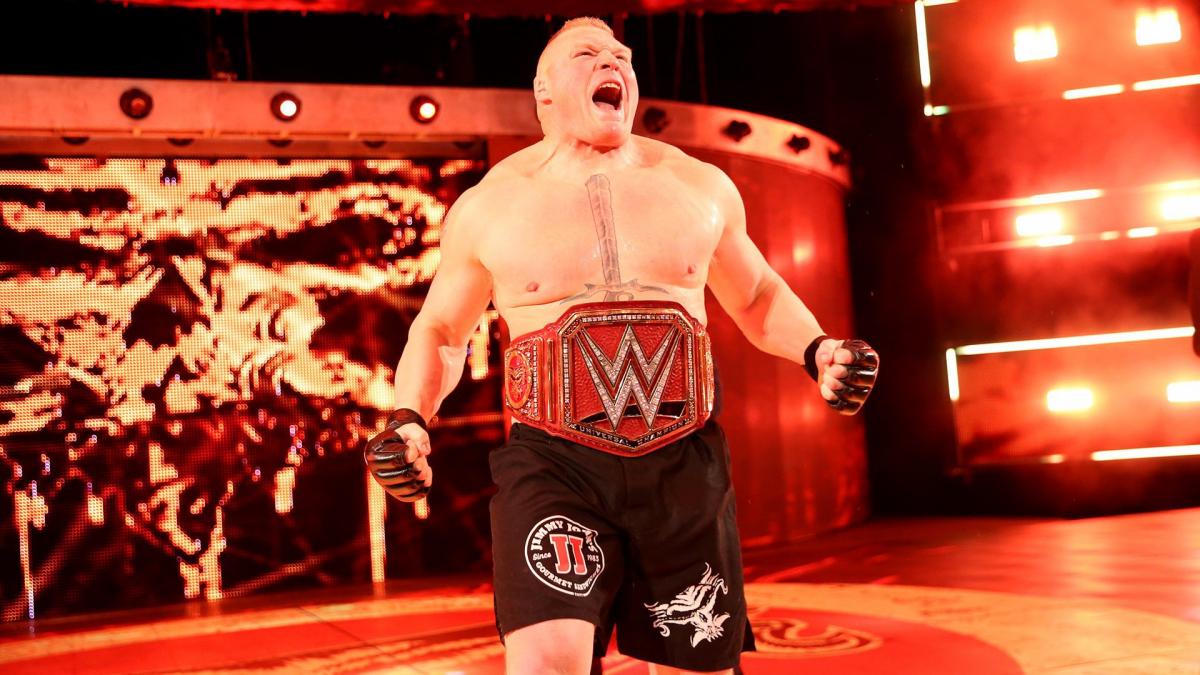WOW - EP147 - Survivor Series 2017 Review
Tim Kail reviews Survivor Series 2017
This year's Survivor Series fluctuated between "fine" and "fun". Nothing was terrible, but nothing was too memorable, and in-between existed a lot of legitimately good fun.
The basic conceit of Raw and SmackDown facing off in competition would resonate more if the stakes were clearly outlined and involved more than "bragging rights".
We might know the motivations of the characters when they're outside the squared circle (i.e. Kurt Angle wants to keep his job, Shane McMahon wants SDLive to be more than the B-show), but we don't know what an actual win in the wrestling match itself signifies. The concept of "why" any of this is happening doesn't have an instantly accessible answer beyond, "Because!"
And that would be fine if other elements in the show didn't seem to emphasize the importance of the win/loss record in a matter that suggested there were actual stakes involved.
Kurt Angle with Shane McMahon in the ankle lock.
Commentary consistently emphasized the win/loss tally throughout the night, trading barbs about their respective brands in an effort to create the sense of tension between the shows. This would work if, within the fictional sport of wrestling, a win earned something like the ability to steal a wrestler from the other show etc. Instead, we got a running tally that didn't mean what it actually suggested, and inadvertently undermined the significance of the main event.
What would happen if Brock Lesnar hadn't defeated AJ Styles? Commentary suggested Brock needed to win to keep RAW in the fight for Brand Supremacy. Does that mean if Brock lost, SmackDown would have automatically won "the night"?
Was the entire show about winning the most matches or did the real "Brand Supremacy" stakes exist only in the traditional 5-on-5 Survivor Series match at the end?
Brock Lesnar
I realize I'm not supposed to ask these questions.
And I also know that these questions will be asked by every other commentator in their critiques the show. I can easily imagine the WWE's response being, "Just have fun!" Ironically, it's a lot easier to "just have fun" when the WWE (or any storyteller) has done the work required of creating an environment where the viewer doesn't get distracted by legitimate loopholes and contradictions in the narrative.
The show would be better, not worse, if these questions were asked preemptively by the WWE, and then answered (at least for themselves if not in the actual show). These gaps exist because someone hasn't fully fleshed out the logic of their fictional universe. When fictional worlds are more thorough, it's easier to get invested in them and "just have fun" in the way WWE wants.
Regardless, the main event delivered exactly the kind of fan-servicey good time it was supposed to, along with an added dash of logical storytelling. The contrast of Braun Strowman and Triple H's perspectives was a welcome psychological twist, nudging Braun's narrative into new and interesting territory.
Braun Strowman faces off with Triple H.
For a full review of each match (as well as more thoughts on the continually unforgivable production value of backstage segments) listen to The Work of Wrestling podcast episode 147 in Apple Podcast, Stitcher, TuneIn, GooglePlay, or in the player below:
Thanks for listening. Have a nice day!



